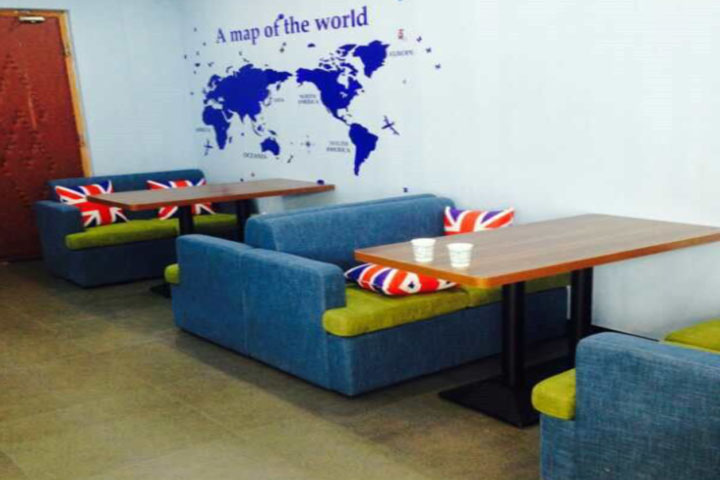现在许多女人发现,自己毕竟无法瘦成超模。她们又有了新的寻求,那就是秀肌肉。腹肌不再是男性专利,而成为时尚女人的标配。
Along the streets of Beijing, flyers advertising newly built gyms are passed into everyone's hands.
在北京街头巷尾,推销新开健身房的传单被塞到每个行人手中。
With prices ranging from 1,000 RMB to 19,000 RMB a year, salespeople are ready to explain the advantages of their gym's membership card over the competition.
销售员竞相向人们解释成为会员的好处,健身房会员卡的价格在每年1000元到1.9万元之间。
Exercise isn't traditionally part of Chinese culture, barring some aunties square-dancing in the park and a few tai chi practitioners on the sidelines. But that's changing now, with the hashtag #MajiaXian going viral on Weibo, China's Twitter.
传统上看,除了那些在公园跳广场舞的大妈和一些在旁边练太极的人,锻炼并非中国文化的一部分。但如今,这种状况正在改变,“马甲线”已成为新浪微博的热搜话题。
Because the outline of well-toned abdominal muscles looks like a vest, Chinese call abs "majia" -- or "vest" -- and "xian" -- or "lines," and this year they have become the goal of many women's pre-summer workouts.
由于健美的腹肌轮廓形似一件背心,中国人称之为“马甲线”,这已经成为很多女性今夏的健身目标。
After seeing people around her with six-packs, fashion designer Liang Yuan started to work out with the goal of well-defined abs.
看到周围有人拥有6块腹肌后,时装设计师梁媛(音)开始为这个目标健身。
She bought a gym membership as a birthday gift for herself. Friends and family members have started to call her a "fitness monster" because she goes to the gym twice a day, seven days in a row.
她给自己买了一张健身房会员卡作为生日礼物。亲朋好友开始叫她“健身狂人”,因为她每天去健身房两次,一周七天不停歇。
"I have done something I didn't even dare to dream in the past, and now I achieved something I thought I was unable to do."
她说:“我完成了过去想都不敢想的事,实现了曾以为难以企及的目标。”
"I want to challenge myself," she added.
她补充说:“我想要挑战自己。”
Women in China have long associated being beautiful with being skinny, but a desire to be thin is often taken to the extreme, with detrimental effect on health and self-esteem -- a situation not unique to China.
长期以来,中国女性一直把美丽与苗条联系起来,但瘦身的愿望经常使她们走向极端,对健康和自尊造成负面影响,这在中国并不鲜见。





